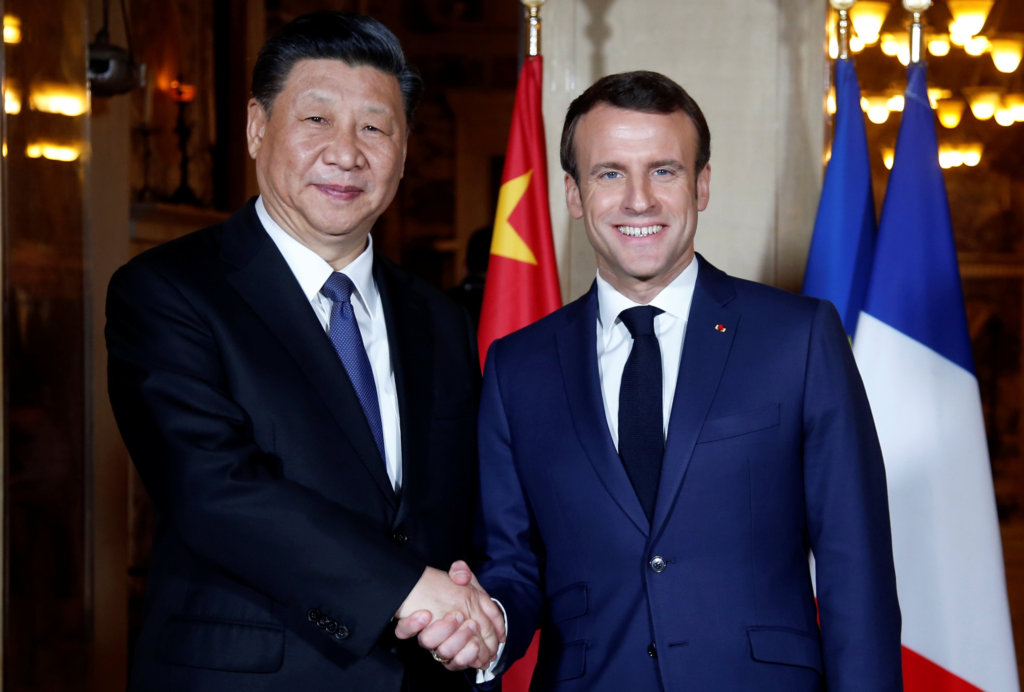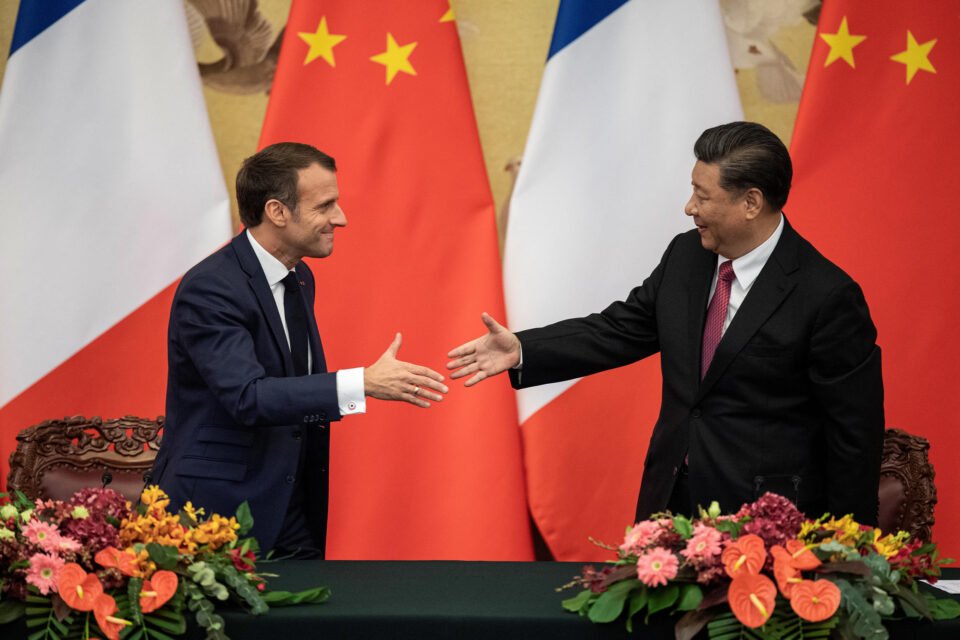In order to “reason” with Russia and assist in putting an end to the war in Ukraine, French President Emmanuel Macron informed his Chinese counterpart Xi Jinping that he relied on him.
In his opening remarks, Macron said that Russia had “put an end to decades of peace in Europe” during the discussions on Thursday in Beijing.

China has sought to portray itself as a broker of peace while claiming neutrality in the war. Yet over the past year, it has continued to forge closer economic and diplomatic ties with the Kremlin, including a state visit from Xi to Moscow last month. As a result, it has refused to denounce the Russian incursion.
Macron traveled to Beijing on Wednesday with high hopes for a potential breakthrough in his efforts to work with China to find ways to put an end to Russia’s conflict in Ukraine.
Ukraine is the main topic of discussion, but Macron’s trip also has a strong economic focus. The French president is in China with a delegation of about 50 business executives, and some of them are expected to close or even sign new business deals while they are there.
According to Chinese state media CCTV, Xi stated at the talks that Macron’s visit would “inject new momentum” into China-European relations. Citing shared work on climate change and African development, the Chinese president said the two nations “have the potential and obligation to transcend differences and limits,” according to CCTV.
According to French diplomatic sources who spoke to CNN, Xi also stated during his conversations with Macron that he is prepared to phone Ukrainian President Volodymyr Zelensky when the time is appropriate.
According to an Elysee Palace source, Macron was anticipated to hold a trilateral meeting with Xi, the head of the European Commission, and von der Leyen later on Thursday. This would follow a pattern of collaborative diplomacy with China between France and the EU.
Following three years of China’s strict pandemic travel restrictions and deteriorating relations over a range of topics, including China’s human rights record and its position on the crisis in Ukraine, Europe and China are looking for ways to reestablish contact. According to a statement from the Elysee, Macron met with Chinese Premier Li Qiang earlier on Thursday to address Russia’s conflict with Ukraine.

According to the statement, Macron had talks with Zhao Leji, the chairman of China’s Standing Committee of the National People’s Congress, in which he “underlined the impact of the war in Ukraine on global security and strategic balances.”
The statement also said that Macron had discussed the conflict in Ukraine with the prime minister. Von der Leyen also promised that Ukraine will be a “key issue” of her discussions with Chinese leaders prior to the visit. Prior to their trip, she and Macron spoke with Volodymyr Zelensky, the president of Ukraine.
European leaders, including von der Leyen, reacted skeptically to a vague plan for a “political solution” to the war that China presented earlier this year amid allegations that some suggestions, such a ceasefire, favored Moscow.
Macron has nevertheless remained upbeat about collaborating with China to advance toward peace.
Speaking to members of the French community in Beijing on Wednesday, Macron asserted that given its close ties to Russia, China may play a “major role” in the situation in Ukraine. He continued by saying it would be improper to permit Russia to speak exclusively with China on how to bring about peace in Ukraine.
Macron was not in China “to question the Chinese red lines – particularly the refusal to condemn Russia,” an Elysee source told reporters last week. Instead, Macron was there to find a way to develop initiatives that could help the Ukrainian people and “then create a way to identify a solution to this war.”
Thursday’s joint statement by the foreign ministers of Saudi Arabia and Iran, which marked the beginning of their bilateral contacts after a seven-year hiatus and followed a historic accord mediated by China last month, provided a current illustration of China’s role as a mediator.




